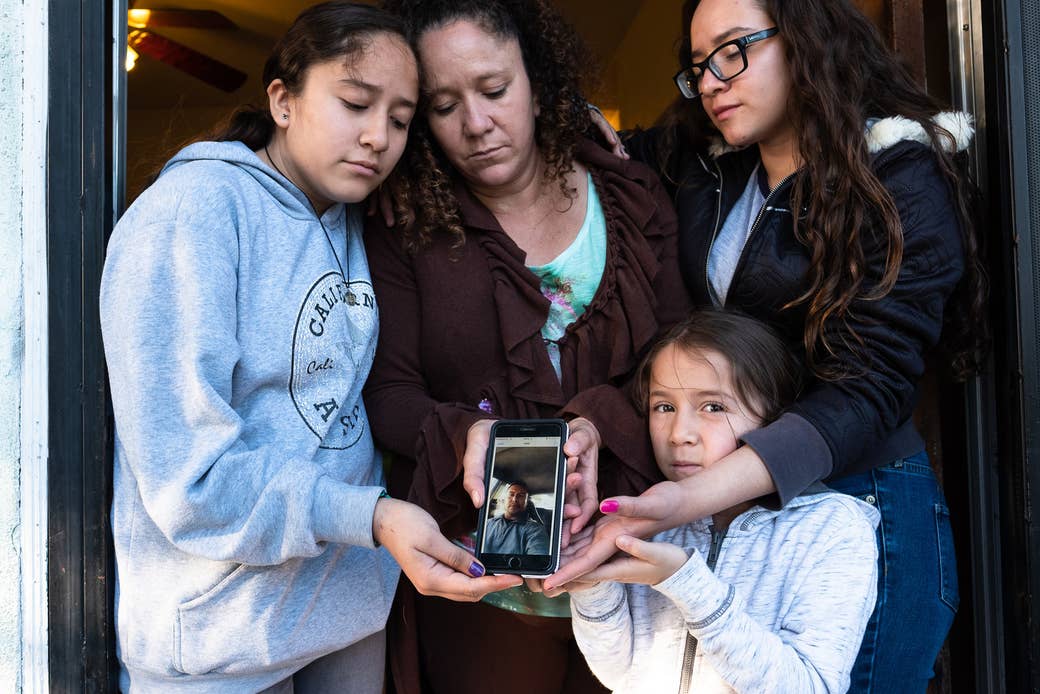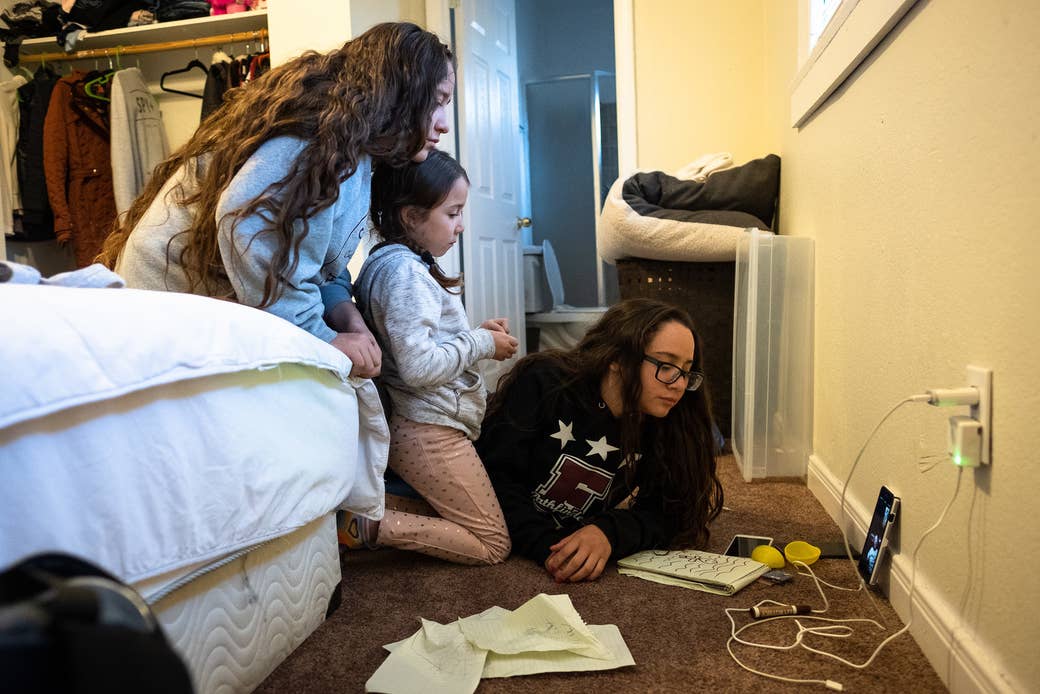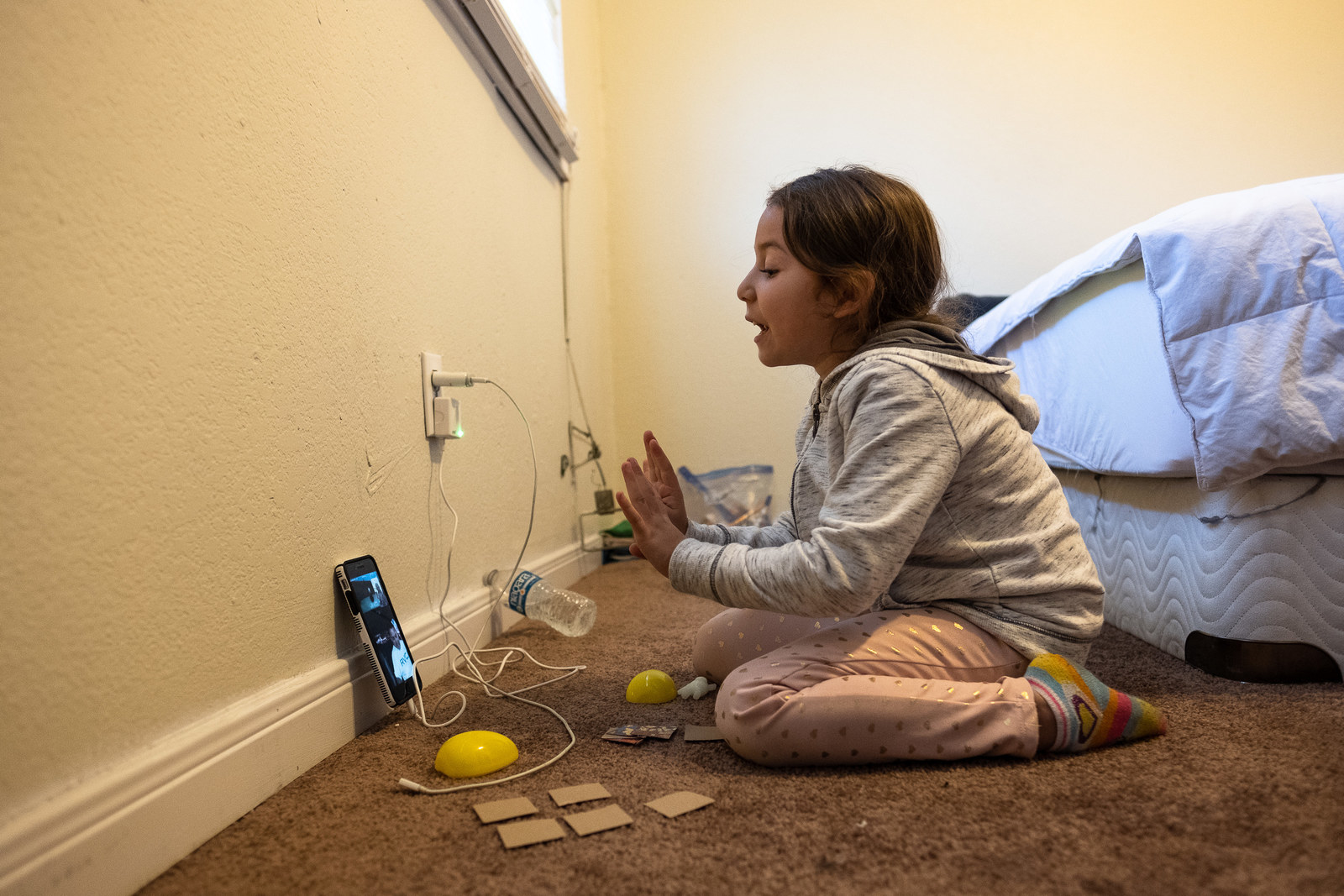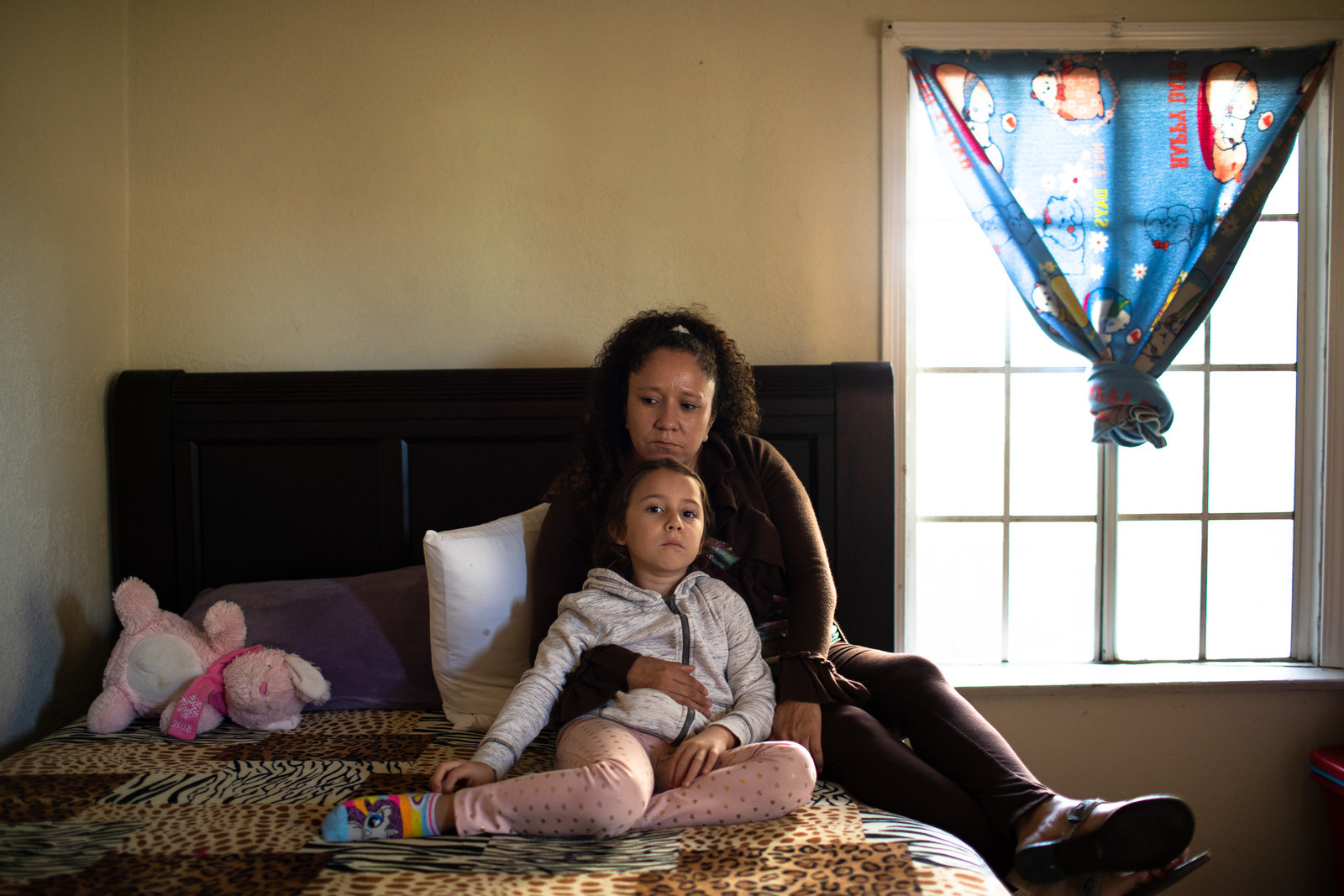
A Guatemalan family split apart by the Trump administration's family separations policy is desperately hoping the US legal system will give them a second chance — but the government argues they don't qualify for one.
First, the US government tore apart Esvin Fernando Arredondo Rodriguez, known as Fernando, from his 12-year-old daughter, Andrea, when the pair asked for asylum at the southern border last May.
The family — Arredondo Rodriguez, 44; his wife, Cleivi, 40; and their three daughters — had fled to the US after their son, Marco, 17, was shot and killed by suspected gang members outside his grandmother's house near Guatemala City.
Then, the family was separated again. After more than 90 days in detention, Arredondo Rodriguez failed his asylum interview and he was deported. Just weeks earlier, former attorney general Jeff Sessions said that gang violence was not a reason to claim asylum, though a federal court struck that down later in the year.
That left Cleivi — who passed her asylum interview with the same set of facts as her husband — in Los Angeles with their daughters.
“It changed my life completely,” Cleivi said, who asked that only her and her daughters first names are used. "I wanted to be with my husband, as a family. But everything is broken."
On Thursday, US District Judge Dana Sabraw will hear arguments on whether parents like Arredondo Rodriguez classify as separated parents in the Ms. L. v. US Immigration and Customs Enforcement case, which effectively ended the family separation policy on June 26, 2018.
If he qualifies, Arredondo Rodriguez might have a chance to return to the US and have a second chance at his asylum interview. But the US government is arguing that parents such as him don't count as separated parents. The reason: Though he was in custody on June 26, his daughter was not.
Arredondo Rodriguez’s case highlights the arbitrary nature of the immigration system — two parents told the same story of their son's murder, but only one passed their asylum interview — and the impact that the Trump administration’s burdensome policies have had on migrant families.
Representatives for Customs and Border Protection and USCIS, which looks after asylum claims, said their agencies do not discuss specific cases. Immigration and Customs Enforcement and Health and Human Services did not respond to BuzzFeed News' request for information before deadline.
"We need to be together," Cleivi told BuzzFeed News. She has only seen her partner of 20 years on FaceTime since May 2018. "I need my husband to be with me. My daughters need their father here."

On the afternoon of April 28, 2017, Marco, the family's eldest child, was shot and killed by two men outside his grandmother's house.
His mother was inside, caring for his grandmother who was ill with cancer. His sister, Keyli, then 15, was next to her brother and on the phone with her father when it happened.
"I heard the gunshots through the phone," Arrendondo Rodriguez told BuzzFeed News. "When I heard her scream, I asked, 'What happened? What's going on?' She just yelled ‘Marco,’ nothing else, she was crying and crying."
Nine bullets struck the 17-year-old. He worked at a local McDonald's.
The family suspects the killers were members of a local gang — though Marco never mentioned he was approached — perhaps seeking retribution because Marco refused to join. Death is a common punishment.
On the day of the wake, friends and family members noticed an unknown car driving back and forth up their street. On the day of the burial, two men on motorbikes rode up to their house and took photos of Cleivi, Keyli, and Arrendondo Rodriguez's mother, who were standing outside. They feared the gang was going to return to kill Keyli or others in the family.
"We had to leave everything, abandon it," Arrendondo Rodriguez said. Cleivi cared for her mother until she died a few months later. They sold their home. They moved between hotels and houses before deciding it was too unsafe to stay in the country.
“My family has been stalked, menaced and threatened. The police did not protect us,” Arrendondo Rodriguez said in a statement the ACLU submitted, as part of its court case, to the US government. The ACLU submitted statements from 50 separated and deported parents to be reviewed by the government for possible return.
The family of five left Guatemala in February 2018 for the US. They spent two months traveling through Mexico. But on a bus between Monterey and Nuevo Laredo, Mexican police took Arrendondo Rodriguez, and his daughter, Andrea, off the bus.
They were released after questioning, but were separated from Cleivi and the two other girls, Keyli and 6-year-old Alison — who had remained on the bus as it continued north.
On May 12, Cleivi and the two girls presented themselves to border officials at the port of entry in Laredo, Texas. They were kept together at Cleivi underwent her credible fear interview — which assesses if someone can pursue a claim of asylum — on May 24 in the family detention center in Dilley, Texas. She passed and the three were released.
Four days later, on May 16, Arrendondo Rodriguez and Andrea presented themselves to border officials at the port of entry in Laredo, Texas.
As soon as Arrendondo Rodriguez finished filling in Andrea's forms, a Customs and Border Protection officer physically removed Andrea.
"I said that I had to be with her, and I needed to know where she was going, since she was only twelve years old," said Arrendondo Rodriguez in a statement to the US government. "The officer answered only that they were taking her and that they might tell me something more specific later. As they took her away, Andrea was looking at me and crying."

It took five or six days until Arrendondo Rodriguez was told that his daughter was at a center for unaccompanied minors in San Antonio. He was unable to speak with his wife, and he spent most of the time barely able to sleep or eat from worry.
He said he spent most days in US custody — nearly four months in detention centers in Texas and Georgia — "in some kind of state of depression" and feeling ill.
"My hair was falling out and I was covered with hives on my skin. Also, my stomach ached from drinking the water. I had symptoms of a urinary tract infection, including trouble urinating and a burning sensation in my private area,” he said in a declaration to the US government, adding he’d lost 8 pounds.
In July — he doesn’t know the exact date and the USCIS wouldn't clarify it — he had his credible fear interview over the phone at the Folkston ICE Processing Center in Georgia.
"I tried to explain that I left everything behind in Guatemala because we were terribly persecuted there and that I was now scared I would never see my family ever again. But during the interview, I never felt like I had any chance to explain why I feared to go back to Guatemala," Arrendondo Rodriguez said in his declaration.
Just a week after Cleivi passed her credible fear interview, Sessions tightened the definitions of what could and couldn't be used to claim asylum.
"Generally, claims by aliens pertaining to domestic violence or gang violence ... will not qualify," he wrote.
An ACLU lawsuit challenged Sessions' arguments in December.

About nine days after his credible fear interview, Arrendondo Rodriguez found out he'd failed.
"That day everything just crumbled," he said. Another detainee allowed him to use his phone card to call Cleivi. “It was very painful. I was nearly speechless.”
“We had plans as a family, we had plans for what we would do in the future. And in that moment, everything changed again,” said Cleivi. "My son died, my mom died ... once again, we went into panic mode."
Arrendondo Rodriguez was deported back to Guatemala on Aug. 22. His lawyer asked for his whereabouts to be kept private for his safety.
"I’ve really been ashamed of my own country," said Linda Dakin-Grimm, a pro-bono immigration lawyer at Milbank LLP in Los Angeles, who is representing the family. "I think we seriously compounded a really bad situation."
As part of the Ms. L lawsuit, the judge said the government needed to reevaluate the cases of some parents who had been deported — and return them to the United States so they could have a chance at taking the credible fear interview again, and potentially be reunited with their children.
Dakin-Grimm has been pushing for Arrendondo Rodriguez to be included as one of these parents. The government wants to tighten the definition of who counts as a separated family, and therefore limit how many families it may be responsible to reunify.
The government argued in court filings earlier this month that if separated children were released to a US sponsor before the June 26 court decision — as Andrea was — then that parent isn't covered by the court's rulings and the child is no longer the responsibility of the government.
Arrendondo Rodriguez was still in custody when the ruling was made. He argues it’s an "arbitrary cutoff date." The government argued that parents whose children were released before June 26 are in “a different legal position."
It also noted that “many may have been reunified” — although there is no data confirming that.
And a January report from the Office of Inspector General for the Department of Health and Human Services found that the government did not know how many families it had separated since the summer of 2017. The report estimates “thousands” of children may have been separated from their parents.
The ACLU, which filed the Ms. L lawsuit, argues that all separated parents should be treated as such, regardless of when their children were released.
Lee Gelernt, the deputy director of the ACLU’s immigrant rights division and lead lawyer on the Ms. L case, said that the focus of the case is on reuniting children with a parent, and since Andrea is living with her mother, she was in a better situation than most separated kids.
"If a child ended up with another parent who they knew and had a relationship with, that child is far luckier than children who might be with a distant relative or relative they didn't know," Gelernt told BuzzFeed News.
On Thursday, the judge will hear arguments about the definition, but does not have to rule on the classifications yet. Arrendondo Rodriguez "deserves to have a measly second chance at a credible fear interview," Dakin-Grimm said.
Cleivi said she "would like this government to take into consideration that we have been separated and we have not been given an opportunity."
“I don't want to be alone any more,” Cleivi said.
Meanwhile, Arrendondo Rodriguez is working odd jobs and said he feels desperate.
"I ask the government to give me another opportunity," he said. "I’m praying to God a lot that they [the US government] allow me the chance to return and be with my wife, with my daughters. To reunite with them, to be a family like we used to be."
